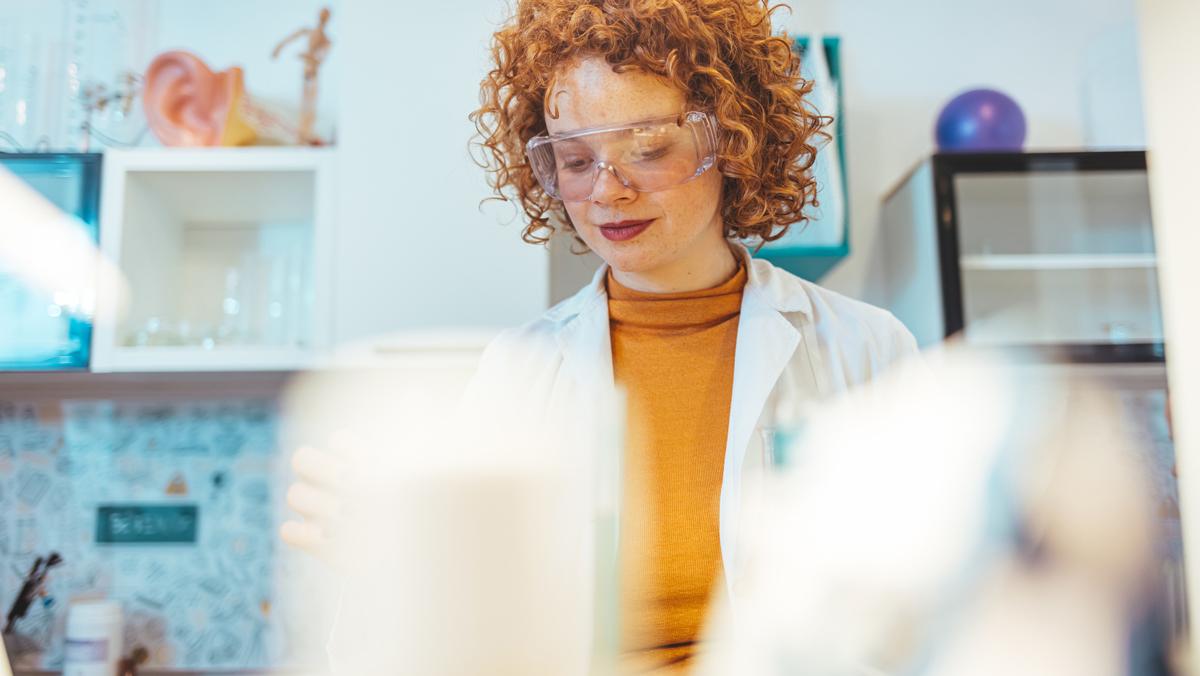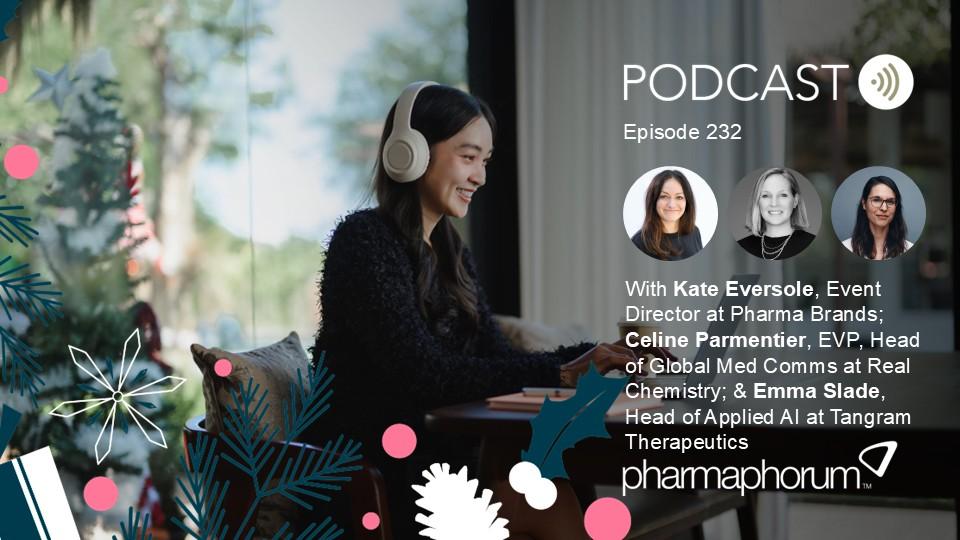Women in science: Where are we now?

As another International Day of Women and Girls in Science dawned, pharmaphorum’s Nicole Raleigh reflected on whether the modern pharma talent pipeline is as balanced and optimised as it could be in its representation at all levels, or whether more could be done to further opportunities for women. Here, she speaks with a range of female scientists at different points in their pharma careers.
The UN’s International Day of Women and Girls in Science, which falls on February 11th, presents a useful opportunity to review how far gender equality has come across life sciences, and to determine what more could be done to further harness female potential. This is important to create a sustainable long-term pipeline of talent, with an optimum blend of skills, experience, ‘energy’, and team and leadership qualities. But what do those at the frontline feel about the opportunities they’ve had in their careers to date?
How far have we come as an industry in fully embracing and recognising female scientists, and in preparing girls to claim their part in the exciting world of science?
Now based in Zurich, Switzerland, but with extensive international experience of both science education and leading teams, Michelle Bridenbaker, COO of Unbiased Science, is now deep in her career. This has spanned critical care nursing, toxicology, commercial roles in pharma and medical device companies, and now leadership in health science communications. Approaching 50, she says the path for women is much smoother now than it was 30+ years ago, when schools were still suggesting teaching as the optimal career option for a girl interested in science or maths.
“I belong to a generation that was repeatedly reminded how tough it is to be a woman in science,” she says. “This prompted me to work harder than needed. But I was fortunate enough to encounter teachers (not all of them female) who said, “I believe in you; let's get you where you need to be.”
Alexandra Tabbitt, who is at the beginning of her career in pharma in the UK, hasn’t encountered that ceiling in perceived opportunity. She graduated in 2023 with a first-class Honours degree in Forensic Investigation, and is now a Quality Control Microbiologist with SERB Pharmaceuticals, based in Ceredigion, West Wales. The company specialises in antidotes, though has a broadening portfolio.
Within just 18 months of leaving university, she is a Band 2 scientist at SERB, has been invited to join a Mentoring programme, and has ambitions to become a Qualified Person. Although her day-to-day role involves quality-testing products throughout their manufacture, she is also actively developing her role via improvement projects, technical investigations, hypothesis testing, and report writing.
“I have always been encouraged in my passion for science,” she says. “I studied Biology and Chemistry to A Level, then studied Forensic Investigation to degree level, which was fascinating and inspiring. If I had continued studying to Master’s level, I would have liked to follow a Biochemistry path. As it is, I may still continue my studies in Microbiology. My employer is keen to promote individual development and has expressed interest in funding a Master’s degree if it would benefit me in my role.”
Is it becoming easier for ambitious women in science to “have it all”?
Across any discipline and career, the issue of family-friendliness remains ever present, but in a demanding field like medicine and life science, does a pressure to choose or to prioritise suppress ambition?
Sabine Gölden has worked in the pharma industry for over a decade. Today, she is the eLearning and training lead at MAIN5, a European consulting firm delivering digitally-enabled change in life sciences. She is based in the Frankfurt Rhine-Main metropolitan area of Germany.
She is also a mother of two, and believes that there is more the industry could do to give each parent a fair chance to be present at home and also progress their career. Although conditions are improving in Europe, to alleviate the sense of having to choose between home or work, she believes there is still a way to go. Otherwise, the industry risks losing talent it badly needs to hang onto.
“The effect of the ‘leaky pipeline’ is a burning topic,” she notes. “This is about how women are more likely to leave STEM fields at various stages of their careers, leading to a significant gender gap in these professions, and much of this is linked to the challenge of ‘working motherhood’. Although there are already great set-ups such as maternity leave, jobs being held, and more flexible working, these provisions don’t go far enough.”
Gölden continues: “I recently listened to a TED Talk about NASA's pioneering women, such as Barbara Paulson and Helen Lane, who balanced motherhood and work by fostering a culture of working motherhood. They shared childcare responsibilities with their husbands, enabling them to contribute to the space race. From my perspective, this is where the biggest challenge lies, though. It's not just about providing opportunities and empowerment for women; it's also about breaking down the barriers for men, who often face potential career and reputational impacts when they assume caretaker roles.”
In 2025, is it okay to recognise and seek out qualities that have previously been deemed “female”?
With so much emphasis on the interchangeability of genders across most roles, especially in science, it can seem retrograde to differentiate and seek out qualities traditionally more associated with one sex. But a balanced workforce needs a blend of all talents and approaches, and the argument that women are often (if not exclusively) inherent multi-taskers and empathetic leaders still holds sway.
One view is that women are good implementers of advanced labour-saving technology, because it frees up time for more critical tasks. This is the view of Agnes Cwienczek, a specialist in advanced approaches to regulatory information management at ArisGlobal, where she is Director of Product Management.
“Although I don’t like to gender-stereotype, women can be particularly strong in problem-solving, critical thinking and creativity, qualities that can be important to the implementation of advanced AI automation solutions within an organisation,” she says.
Jean Redmond, COO at Biologit, a technology company transforming literature monitoring for pharmacovigilance, agrees. “While AI is hugely powerful and set to transform the industry, it needs to be understood as a tool first and not a solution out of context,” she notes. “For example, AI and automation is set to transform the landscape of clinical trials, an area in which women have been historically underrepresented. There is huge scope and opportunity here for women to play a key part.”
Leadership and communication can also be pronounced strengths. Unbiased Science, a female-owned and -led company, was founded on these qualities. Dr Jessica Steier, its CEO and the well-known host of its eponymous podcast channel, is passionate about the role women have to play in communicating “good science” in a world awash with dis- and misinformation.
Not yet 40, Steier has been widely recognised for her achievements here. A public health expert, specialising in science communication, she believes women in science can have a direct bearing on a country or region’s economic prosperity, social justice, and environmental integrity.
"With over half a million followers across our channels, we're proving that when women lead in science, we can create innovative approaches that bridge the gap between complex data and community needs,” she says.
“As women, daughters, and mothers ourselves, we understand that scientific communication must meet people where they are, acknowledge their concerns, and provide evidence-based information they can trust. This integration of data science and empathetic communication represents the future of sustainable development, where evidence and understanding together drive positive change."
Her company’s research arm recently evaluated Mississippi’s Communities and Hospitals Advancing Maternity Practices (CHAMPS) programme, highlighting scope for healthcare savings of over $10 million annually if mental health access was improved. A flu vaccine campaign, meanwhile, identified two prominent cohorts with vaccine hesitancy; Unbiased Science then tailored communication strategies for them, changing many thousands of minds about getting vaccinated. “It demonstrated how combining rigorous data analysis with empathetic communication can improve health equity,” Steier notes.
Ultimately, all scientific industries need to be proactive in attracting the optimal blend of talent to keep pace with demand and innovation progress. And, as ArisGlobal’s Cwienczek mentions, “that includes being mindful of other regions around the world; for instance, in developing countries where access to science education is hindered by limitations with funding and other resources. As much as conditions and opportunities might be improving in some parts of the world, we’re still a long way from equal opportunities internationally.”
About the interviewees
 Michelle Bridenbaker owns and is COO of Unbiased Science, a health science communications company. She is also VP of Medical Information Leaders in Europe (MILE), and serves on the scientific boards of multiple tech and device firms, contributing to cutting-edge advancements in communications, science, and medicine.
Michelle Bridenbaker owns and is COO of Unbiased Science, a health science communications company. She is also VP of Medical Information Leaders in Europe (MILE), and serves on the scientific boards of multiple tech and device firms, contributing to cutting-edge advancements in communications, science, and medicine.
 Agnes Cwienczek is director of product management at ArisGlobal, specialising in regulatory information management, document management, submission management, and labelling management.
Agnes Cwienczek is director of product management at ArisGlobal, specialising in regulatory information management, document management, submission management, and labelling management.
 Jean Redmond is chief operating officer at Biologit, a technology company revolutionising literature monitoring for pharmacovigilance. At Biologit, Redmond oversees operations and leads strategic growth initiatives, leveraging her background in general management, strategy, operations, and scientific research.
Jean Redmond is chief operating officer at Biologit, a technology company revolutionising literature monitoring for pharmacovigilance. At Biologit, Redmond oversees operations and leads strategic growth initiatives, leveraging her background in general management, strategy, operations, and scientific research.
 Dr Jessica Steier is the founder and CEO of Unbiased Science and host of the Unbiased Science podcast. An accomplished public health expert specialising in science communication, Steier is committed to providing audiences - in particular, the general public - with accurate, unbiased, and methodologically sound information. Across a career straddling both the private sector and academia, Steier has honed her dedication both to rigorous scientific inquiry and to bettering the health and welfare of communities.
Dr Jessica Steier is the founder and CEO of Unbiased Science and host of the Unbiased Science podcast. An accomplished public health expert specialising in science communication, Steier is committed to providing audiences - in particular, the general public - with accurate, unbiased, and methodologically sound information. Across a career straddling both the private sector and academia, Steier has honed her dedication both to rigorous scientific inquiry and to bettering the health and welfare of communities.
 Alexandra Tabbitt graduated in 2023 with a first-class Honours’ degree in Forensic Investigation, where she developed a keen interest in toxicology. She is a Quality Control Microbiologist with SERB Pharmaceuticals, based in West Wales.
Alexandra Tabbitt graduated in 2023 with a first-class Honours’ degree in Forensic Investigation, where she developed a keen interest in toxicology. She is a Quality Control Microbiologist with SERB Pharmaceuticals, based in West Wales.
 Sabine Gölden is eLearning & training lead at MAIN5, a European consulting firm delivering digitally-enabled change in life sciences. She is based in the Frankfurt Rhine-Main metropolitan area of Germany.
Sabine Gölden is eLearning & training lead at MAIN5, a European consulting firm delivering digitally-enabled change in life sciences. She is based in the Frankfurt Rhine-Main metropolitan area of Germany.












